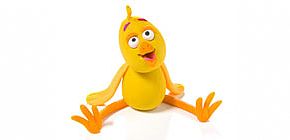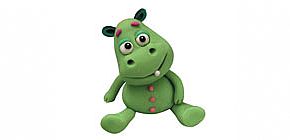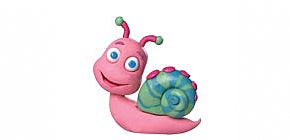How to Identify Teething Pains in Infants
 |
|
Your infant is drooling, spends lots of time stuffing their hands into their mouth, has no appetite and can’t sleep. Sounds like they could be suffering from teething pains. Read on to learn all the signs of teething, as well as those symptoms that do not actually indicate teething in infants.
Some infants (and their parents) are fortunate to experience just one symptom when teething - the eruption of a new tooth. Yet, roughly one-third of infants experience a wide variety of symptoms that appear in the days before a new tooth erupts. These symptoms are surrounded by a myriad of myths, as the list of symptoms of teething currently known to parents is extremely vast. So, what actually indicates teething and when are the symptoms indicative of a virus or other phenomena? Read on to learn more.
Symptoms that indicate teething
Phenomena linked to teething appear a few days before a new tooth erupts from beneath the gums. Symptoms that last longer are not linked to teething. Symptoms of teething include:
-
Increased salivation - Infants tend to salivate from a very young age, but their saliva increases ahead of a new tooth’s emergence, and can cause redness or blemishes on their chins.
-
Red or swollen gums - Sometimes a slight infection develops at the site where a new tooth prepares to break through the gums, causing redness, swelling and sensitivity to touch. There is need to treat this infection; it will pass on its own once the tooth has erupted.
-
A strong need to chew on hands or toys - Teething infants need to keep their gums busy. That being said, it’s important to remember that stuffing items into their mouths is also an important developmental stage, one linked to the development of hand-eye coordination, and so it is important to allow them to place safe objects and teethers in their mouths.
-
A decrease in appetite - Gum sensitivity can cause your infant to eat less, and to prefer cold foods over warm ones. Don’t worry. In most cases, their appetite will return after a day or two.
-
Ear pulling - Infants sometimes feel pain in the ear area while teething, and will pull on their ears in response.
-
Sleeping difficulties - The pain associated with a new tooth’s eruption through the gums can make it hard for little ones to sleep. As such, you can administer a gentle pain reliever.
Which symptoms are not linked to teething?
Many symptoms are currently considered linked to teething, but no medical findings indicate a connection between the two. These include: high fever, diarrhea, colds, vomiting, etc. many parents swear that their infants have loose stools or fever when teething. One of the medical reasons for this is that infants tend to place more objects into their mouths while teething and are therefore more vulnerable to viral and other types of infections. If these symptoms persist for longer than 24 hours, it’s a good idea to head to the doctor.
When does teething take place?
For most infants, teething takes place between 6-24 months of age. Some are early teethers and can get their first tooth as early as at 4 months old, while others are late bloomers and reach their first birthdays without a single tooth. The recommendation is to seek medical advice if the first tooth does not erupt by 18 months.
Like the first smile, steps and other wondrous moments, teething will accompany your little one’s first year, only with less pleasure. Many infants ...
Many infants suffer from runny noses in the days before a new tooth erupts, but studies show that there is no real connection between the two. So why ...
Does your infant have a fever? Are they irritable and without an appetite? Do they suffer from a diaper rash and lack of sleep? All these symptoms ...


.jpg)
.jpg)
.jpg)
.jpg)



.jpg)
.jpg)
.jpg)
.jpg)

.jpg)


.jpg)
.jpg)
.jpg)
Contact us